Comprehensive Guide to Cummins Diesel Repairs
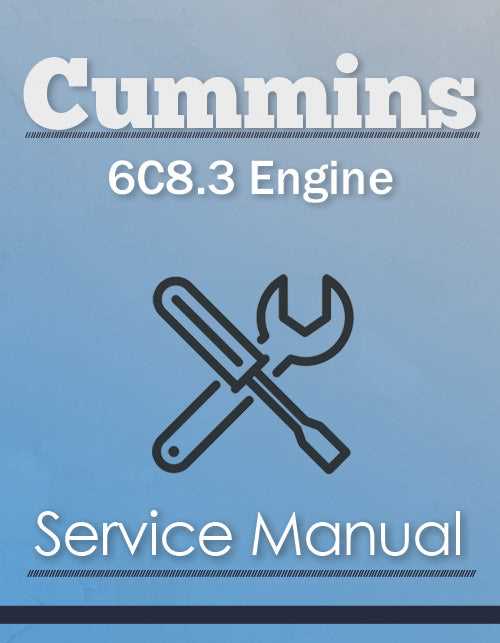
Maintaining the performance and longevity of heavy machinery is crucial for any operator. Understanding the intricacies of engine systems can significantly enhance operational efficiency and reduce downtime. This section delves into essential practices and insights for effective machinery upkeep.
It is vital to familiarize oneself with the various components and their functions within these robust systems. Knowledge of troubleshooting techniques and routine maintenance schedules empowers users to address issues promptly, ensuring that equipment remains in optimal condition.
Through detailed explanations and practical advice, this guide aims to equip users with the necessary tools to manage their machinery effectively. By implementing these strategies, operators can achieve greater reliability and performance, ultimately leading to enhanced productivity.
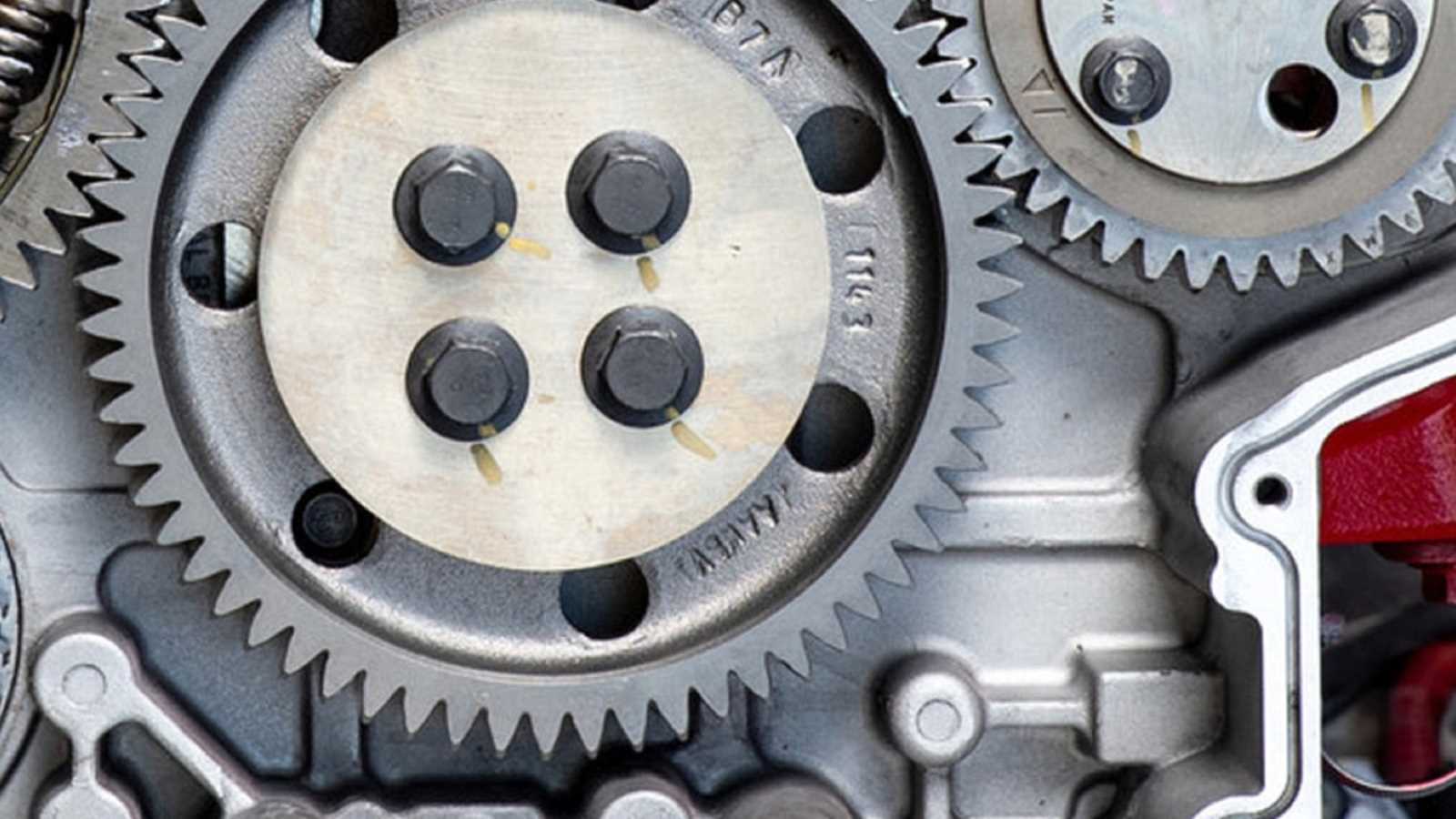
Effective upkeep of high-performance engines necessitates a selection of vital instruments. These tools are essential for ensuring optimal functionality and longevity, enabling technicians to address a range of maintenance tasks efficiently.
The following table outlines some key implements required for thorough engine servicing:
| Tool Name | Purpose |
|---|---|
| Torque Wrench | Ensures proper tightening of bolts to manufacturer specifications. |
| Oil Filter Wrench | Facilitates easy removal and installation of oil filters. |
| Compression Gauge | Measures the compression pressure of cylinders to assess engine health. |
| Multimeter | Tests electrical components and checks battery voltage. |
| Fuel Pressure Tester | Measures fuel pressure to diagnose fuel system issues. |
| Diagnostic Scanner | Reads fault codes from the engine control unit for troubleshooting. |
| Pliers and Wrenches | Used for a variety of fastening and loosening tasks. |
| Safety Goggles | Protects eyes during maintenance and repairs. |
| Oil Catch Pan | Collects fluids during oil changes to prevent spills. |
| Grease Gun | Applies grease to fittings to maintain lubrication. |
Having the right tools not only streamlines the maintenance process but also enhances safety and efficiency. Proper utilization of these implements will greatly contribute to the performance and reliability of the machinery.
Understanding Engine Components and Functionality
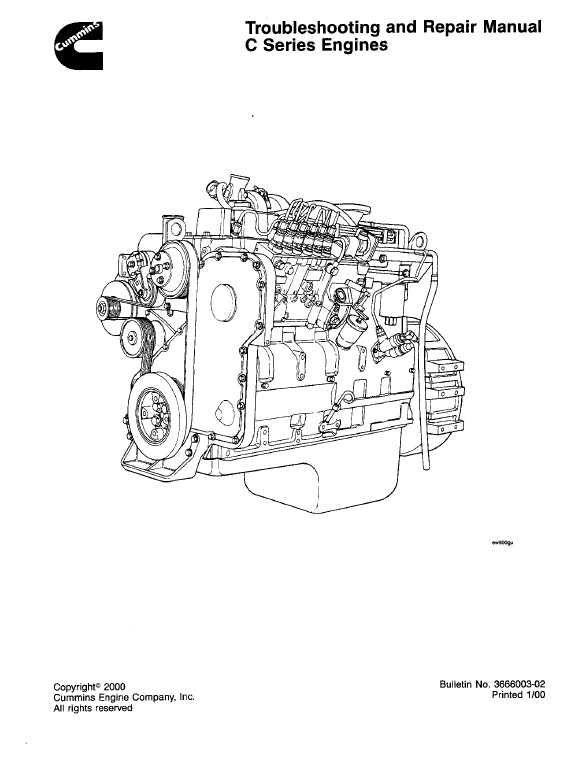
To fully appreciate how a power unit operates, it’s essential to grasp the various parts involved and their respective roles. Each component works in unison to ensure optimal performance, efficiency, and reliability. An understanding of these elements lays the foundation for effective maintenance and troubleshooting.
| Component | Function |
|---|---|
| Cylinder Block | Houses the cylinders and supports other engine parts. |
| Piston | Moves up and down within the cylinder, creating pressure to facilitate combustion. |
| Crankshaft | Transforms the linear motion of the pistons into rotational energy. |
| Camshaft | Controls the timing of valve openings and closings. |
| Fuel Injector | Delivers fuel into the combustion chamber for ignition. |
| Turbocharger | Enhances engine efficiency by increasing air intake. |
Common Issues in Diesel Engines
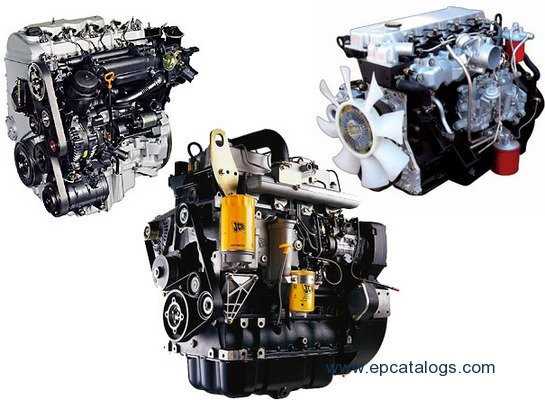
Internal combustion engines often face a variety of challenges that can affect their performance and longevity. Understanding these common problems can help in maintaining optimal functionality and preventing costly repairs.
1. Fuel System Problems
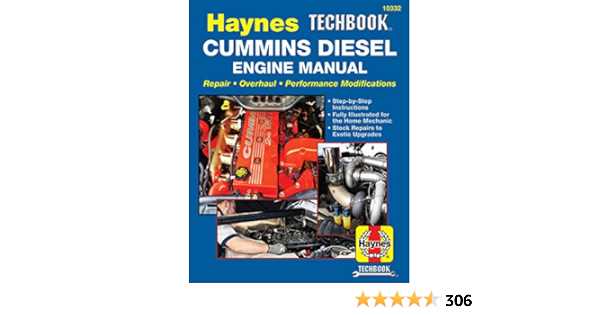
Fuel-related issues are prevalent and can lead to various complications, including:
- Clogged fuel filters
- Poor fuel quality
- Faulty injectors
Regular inspection and maintenance of the fuel system are essential to avoid these issues.
2. Overheating
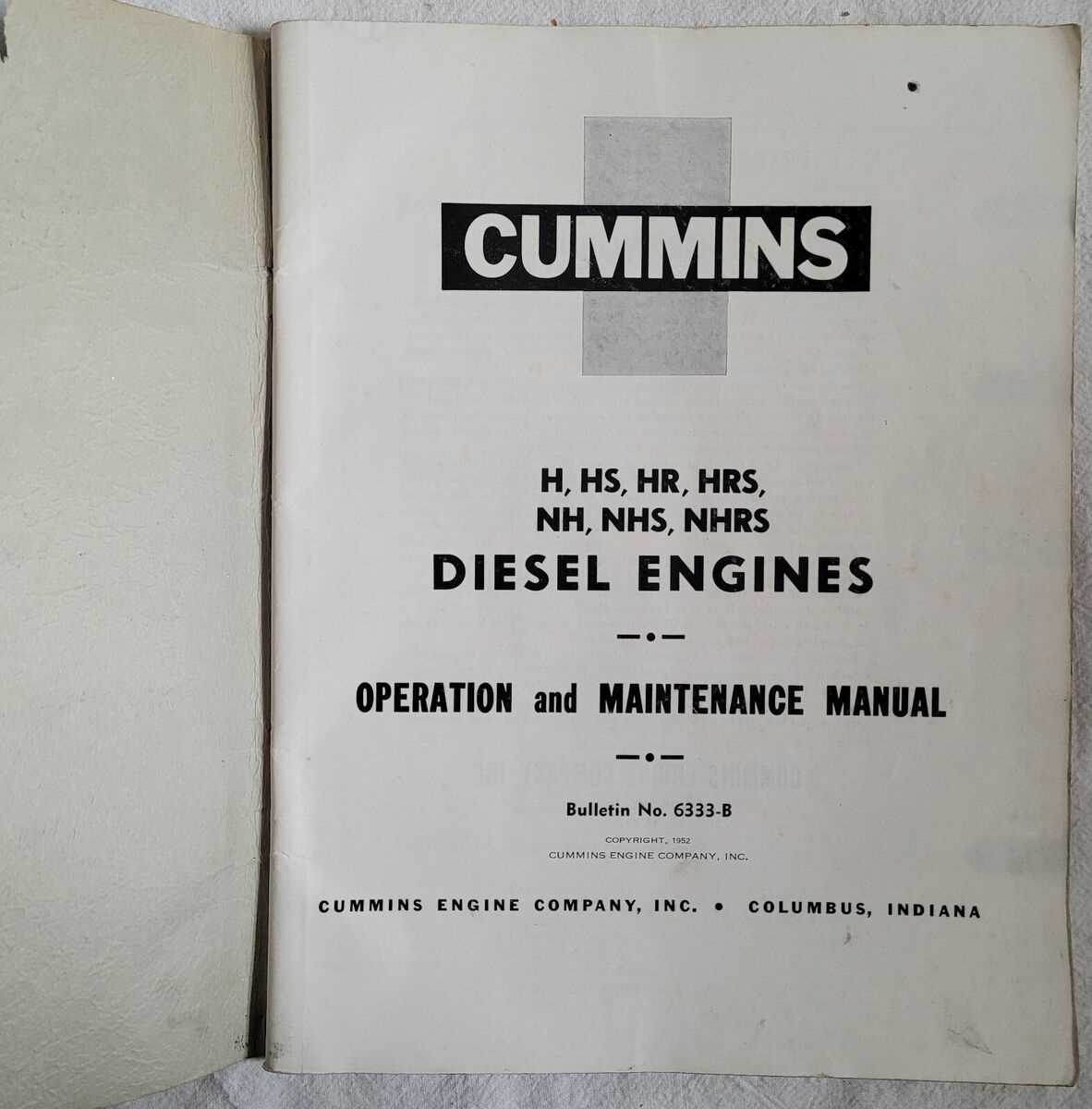
Excessive heat can cause significant damage to engine components. Common causes include:
- Insufficient coolant levels
- Faulty thermostats
- Blocked radiator
Keeping the cooling system in good condition is crucial for preventing overheating and ensuring efficient operation.
Step-by-Step Troubleshooting Techniques
Effective diagnostics are crucial for identifying and resolving issues within complex machinery. A structured approach helps in systematically isolating problems and implementing solutions.
Initial Assessment
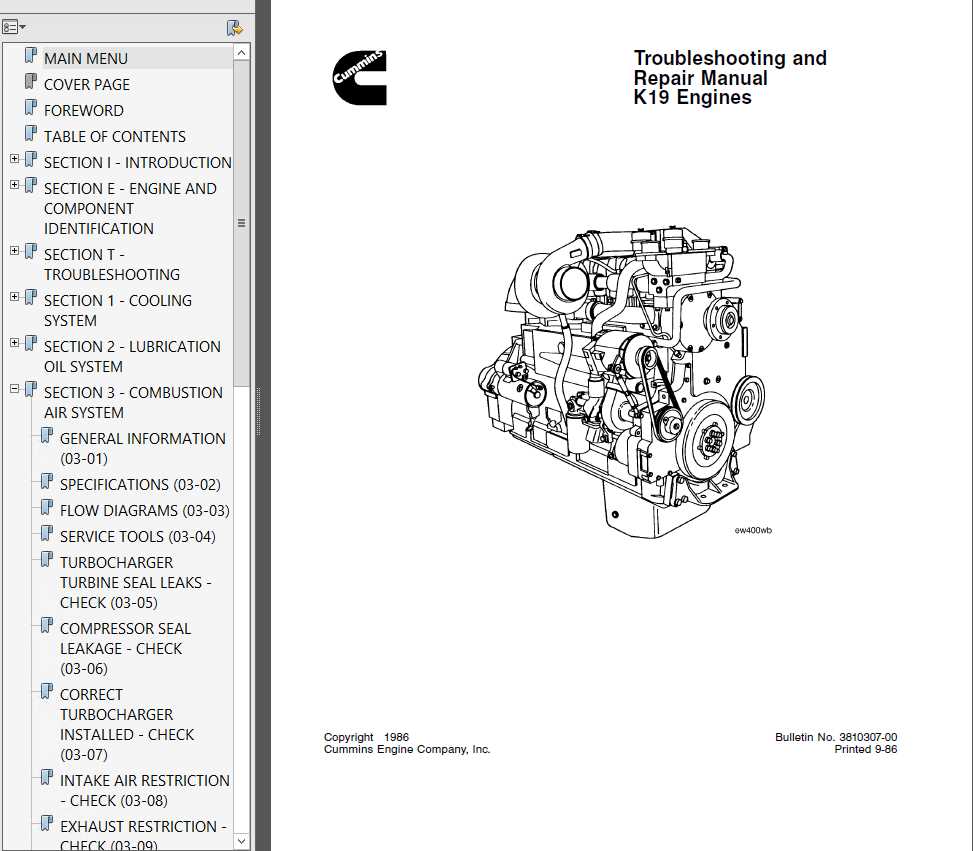
- Gather all relevant information regarding the symptoms.
- Review any previous service records or notes related to the equipment.
- Conduct a visual inspection for obvious signs of wear or damage.
Systematic Approach
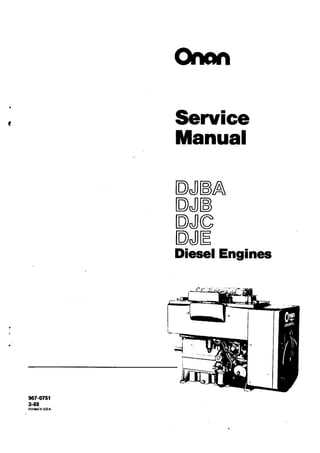
- Identify the specific system or component exhibiting issues.
- Utilize appropriate diagnostic tools to gather data.
- Compare findings with standard operating parameters.
- Make necessary adjustments or replacements based on analysis.
- Test the system to confirm the effectiveness of the corrective actions.
Preventive Maintenance Best Practices
Implementing a routine of proactive care can significantly enhance the longevity and performance of machinery. By adhering to systematic checks and upkeep, operators can identify potential issues before they escalate into serious problems.
Here are some essential practices to consider:
- Regularly inspect key components for signs of wear or damage.
- Follow a strict lubrication schedule to ensure all moving parts function smoothly.
- Monitor fluid levels and quality, replacing them as necessary to maintain optimal performance.
- Keep the operating environment clean to prevent contamination and other external factors that may affect functionality.
In addition to these practices, maintaining accurate records of all maintenance activities can help in tracking performance trends and scheduling future inspections.
Ultimately, a commitment to these best practices will lead to enhanced reliability and efficiency, reducing the risk of unexpected downtime.
Oil Change Procedures and Guidelines
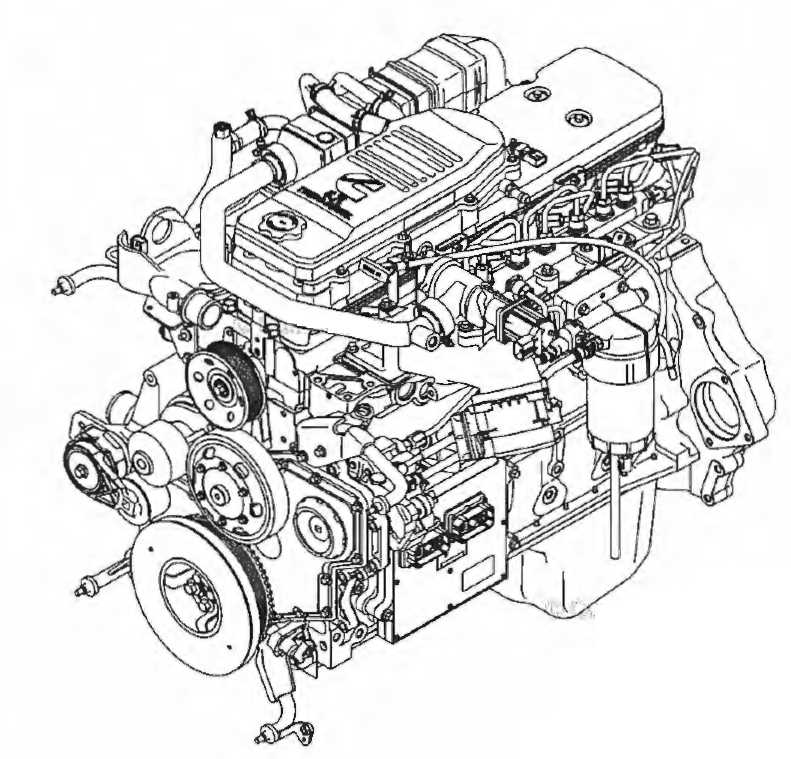
Regular maintenance of your engine’s lubricant is crucial for ensuring optimal performance and longevity. This section outlines essential steps and best practices to follow when changing the fluid, helping you to maintain a reliable and efficient system.
Preparation for the Oil Change
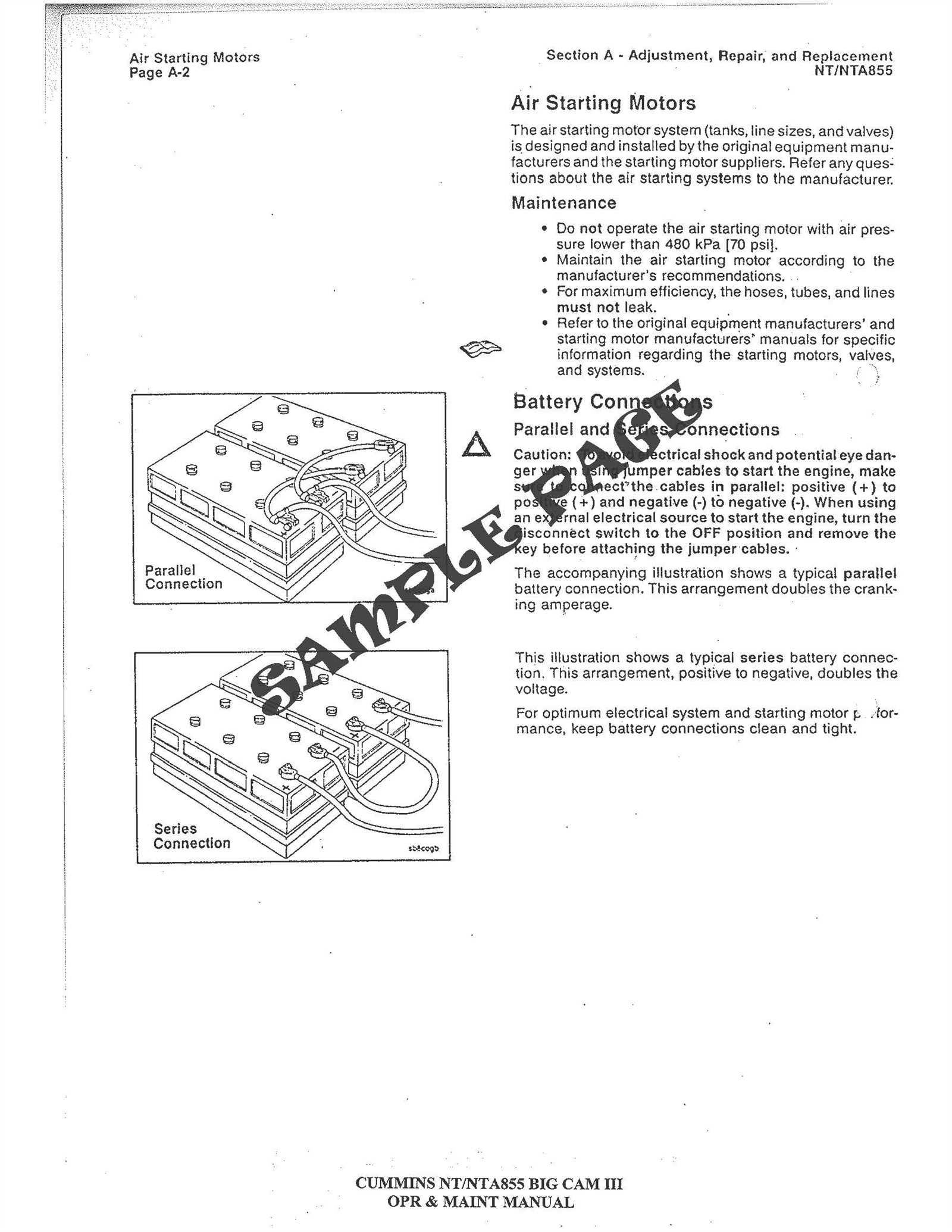
- Gather necessary tools and supplies, including a suitable lubricant, an oil filter, and a wrench.
- Ensure the engine is warm to promote better drainage of the old lubricant.
- Park the vehicle on a level surface and engage the parking brake for safety.
Steps for Changing the Oil
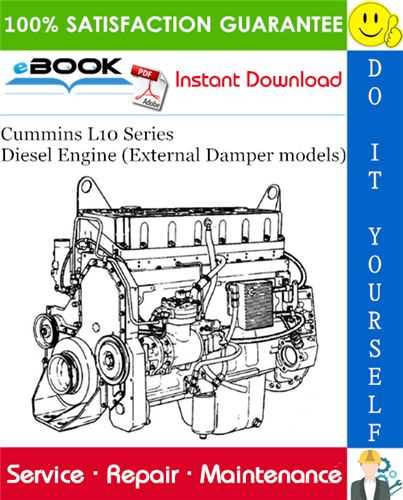
- Remove the drain plug and allow the old lubricant to fully drain into a container.
- Replace the drain plug securely after all fluid has drained.
- Install a new oil filter, ensuring a proper seal to prevent leaks.
- Pour in the new lubricant, following the manufacturer’s recommendations for quantity and type.
- Check the fluid level using the dipstick and add more if necessary.
- Run the engine for a few minutes, then recheck the fluid level and inspect for leaks.
Adhering to these guidelines will help maintain the efficiency of your engine and prevent premature wear. Regular checks and changes will contribute significantly to its overall health.
Fuel System Maintenance and Repair
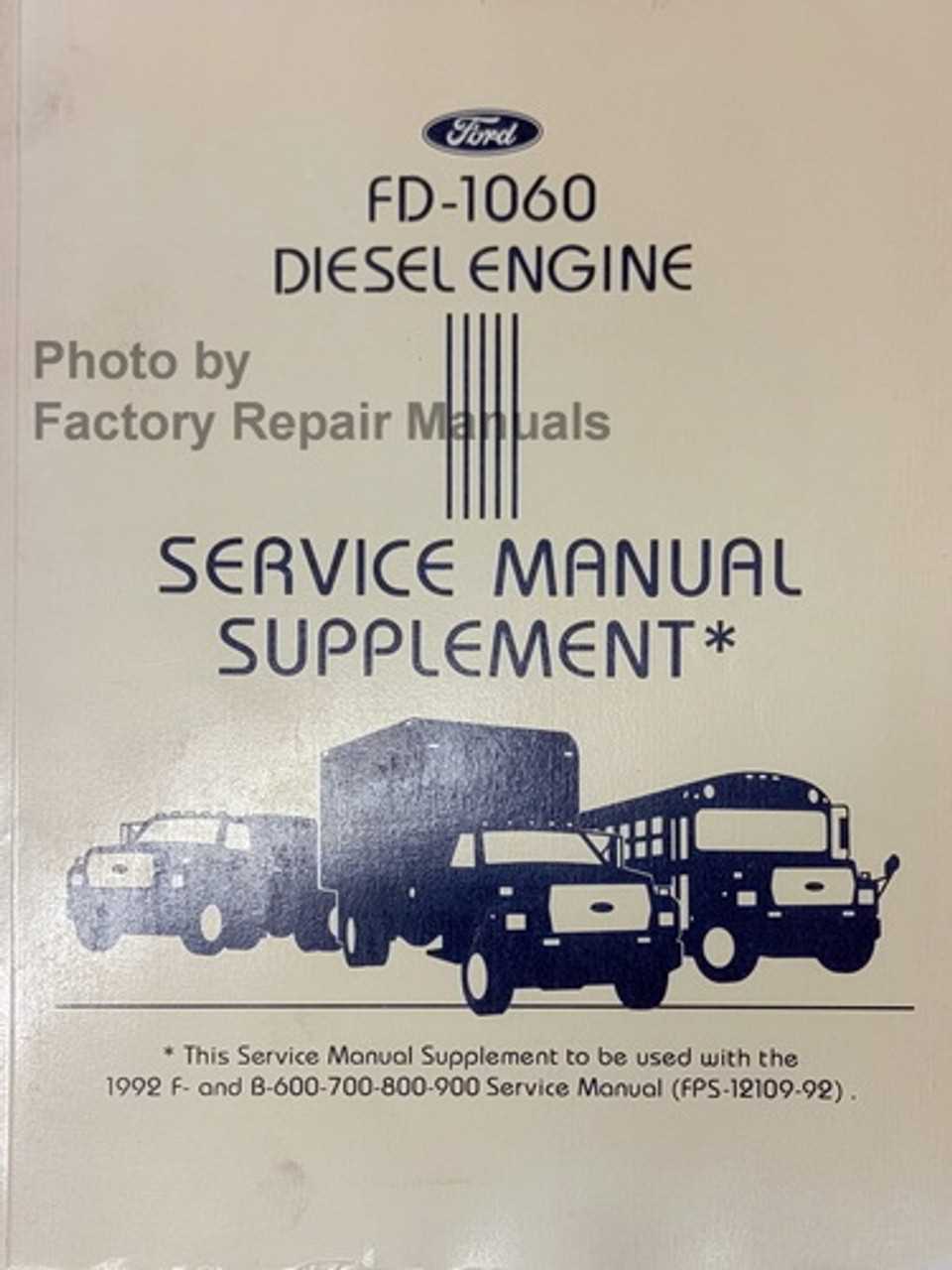
The performance and longevity of any engine heavily rely on the efficiency of its fuel delivery system. Regular upkeep and prompt attention to potential issues are essential to ensure optimal operation and prevent costly breakdowns.
Routine Checks
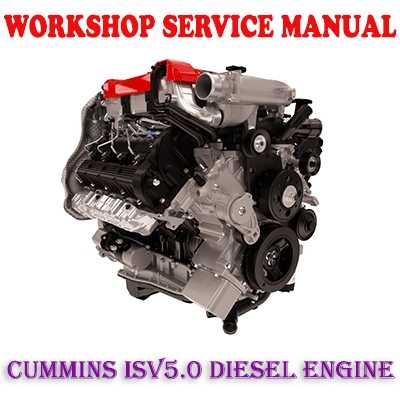
- Inspect fuel filters for clogs and replace as necessary.
- Monitor fuel lines for leaks or wear.
- Check connections and seals for tightness and integrity.
Common Issues and Solutions
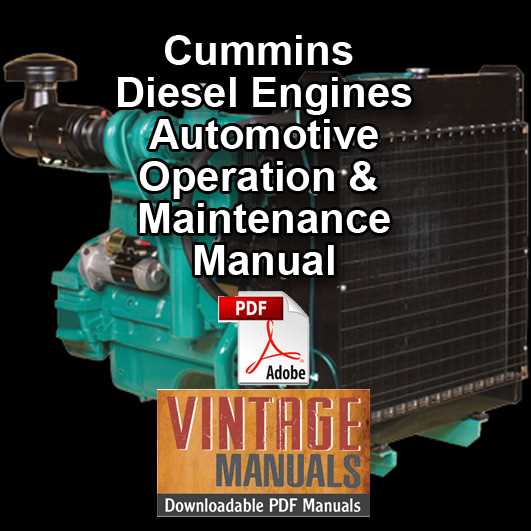
- Contaminated Fuel: Use a fuel cleaner and consider changing the fuel source.
- Poor Performance: Clean or replace the injectors and check for blockages in the system.
- Leakage: Identify the source and replace damaged hoses or fittings.
Regular attention to these areas will not only enhance efficiency but also extend the life of the engine. Always consult with professionals if unsure about specific maintenance tasks.
Electrical System Diagnostics and Solutions
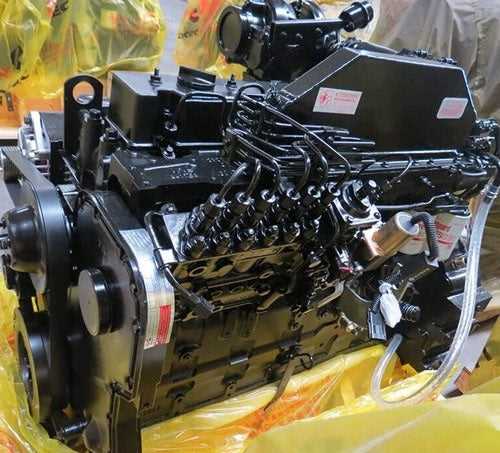
The effective functioning of any engine heavily relies on its electrical components. Proper assessment and troubleshooting of these systems are crucial for maintaining optimal performance. This section will delve into the methods and techniques used to identify electrical issues and implement corrective measures.
Common electrical faults can arise from various sources, including wiring problems, component failures, and connection issues. A systematic approach to diagnosing these faults involves the use of specialized tools and a thorough understanding of the electrical schematics. Below is a table summarizing key diagnostic methods and their corresponding solutions:
| Diagnostic Method | Description | Recommended Solution |
|---|---|---|
| Visual Inspection | Check for damaged wires and loose connections. | Repair or replace any damaged components. |
| Voltage Testing | Measure voltage at various points in the circuit. | Ensure proper voltage levels are present; replace faulty components. |
| Continuity Testing | Verify the path of electricity through circuits. | Repair any breaks in the circuit or replace connectors. |
| Load Testing | Assess the performance of electrical components under load. | Replace underperforming parts to ensure reliability. |
By utilizing these diagnostic techniques, one can effectively address electrical system issues, ensuring that the engine operates smoothly and efficiently.
Overhaul Procedures for Diesel Engines
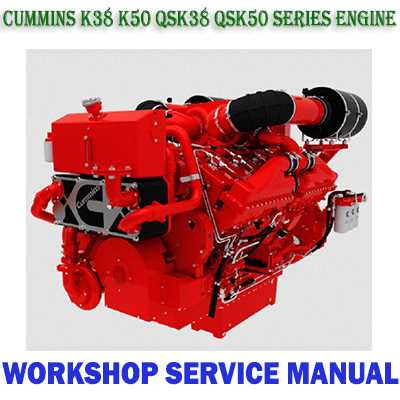
The process of revamping engines involves a series of systematic steps aimed at restoring optimal performance and efficiency. This comprehensive approach ensures that all components function harmoniously after significant wear and tear.
Preparation is Key: Before starting the overhaul, it is crucial to gather all necessary tools and components. A well-organized workspace minimizes delays and enhances productivity.
Disassembly Steps: Begin by carefully dismantling the engine, documenting each step to facilitate reassembly. Pay close attention to the condition of various parts, noting any that require replacement or refurbishment.
Cleaning and Inspection: Once disassembled, thoroughly clean all components to remove dirt and contaminants. Inspect each part meticulously for signs of damage or wear, as this will inform necessary repairs.
Reassembly Techniques: As you begin reassembly, follow the documented steps closely. Use new gaskets and seals where applicable to prevent future leaks and ensure a tight fit.
Final Adjustments: After reassembly, conduct thorough checks to confirm that all connections are secure. Make necessary adjustments to achieve the manufacturer’s specifications for performance and safety.
Safety Precautions During Repairs
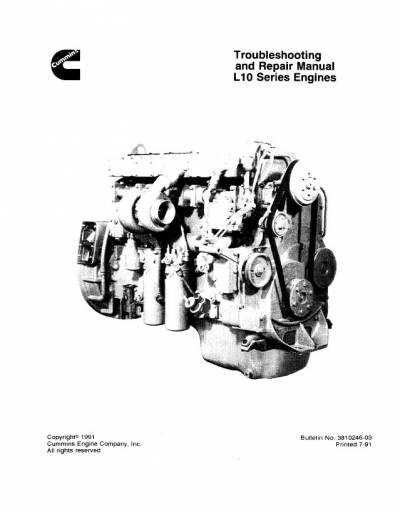
Ensuring safety while performing maintenance tasks is essential for both the technician and the equipment. Adhering to proper protocols minimizes risks and fosters a secure working environment.
Essential Safety Gear
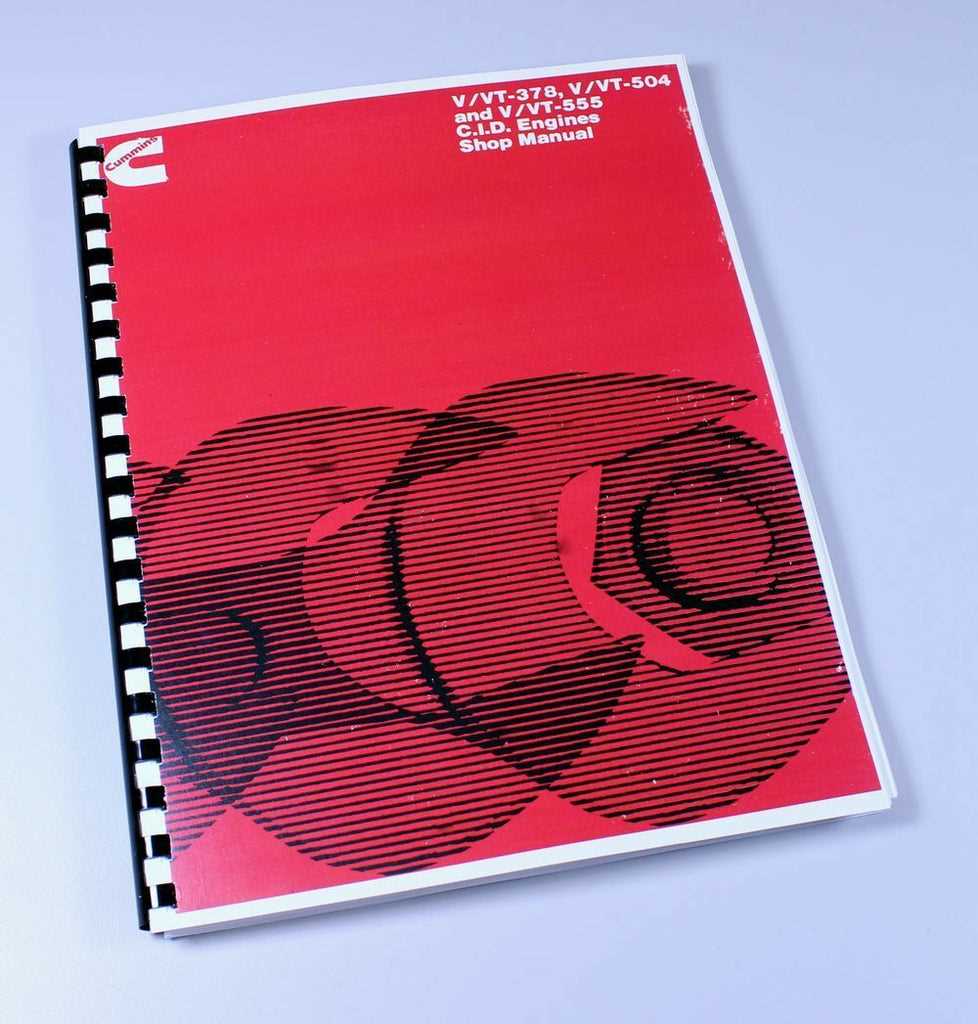
Wearing the right protective equipment is crucial when handling machinery. This includes gloves, goggles, and steel-toed boots to shield against potential hazards.
Work Area Considerations
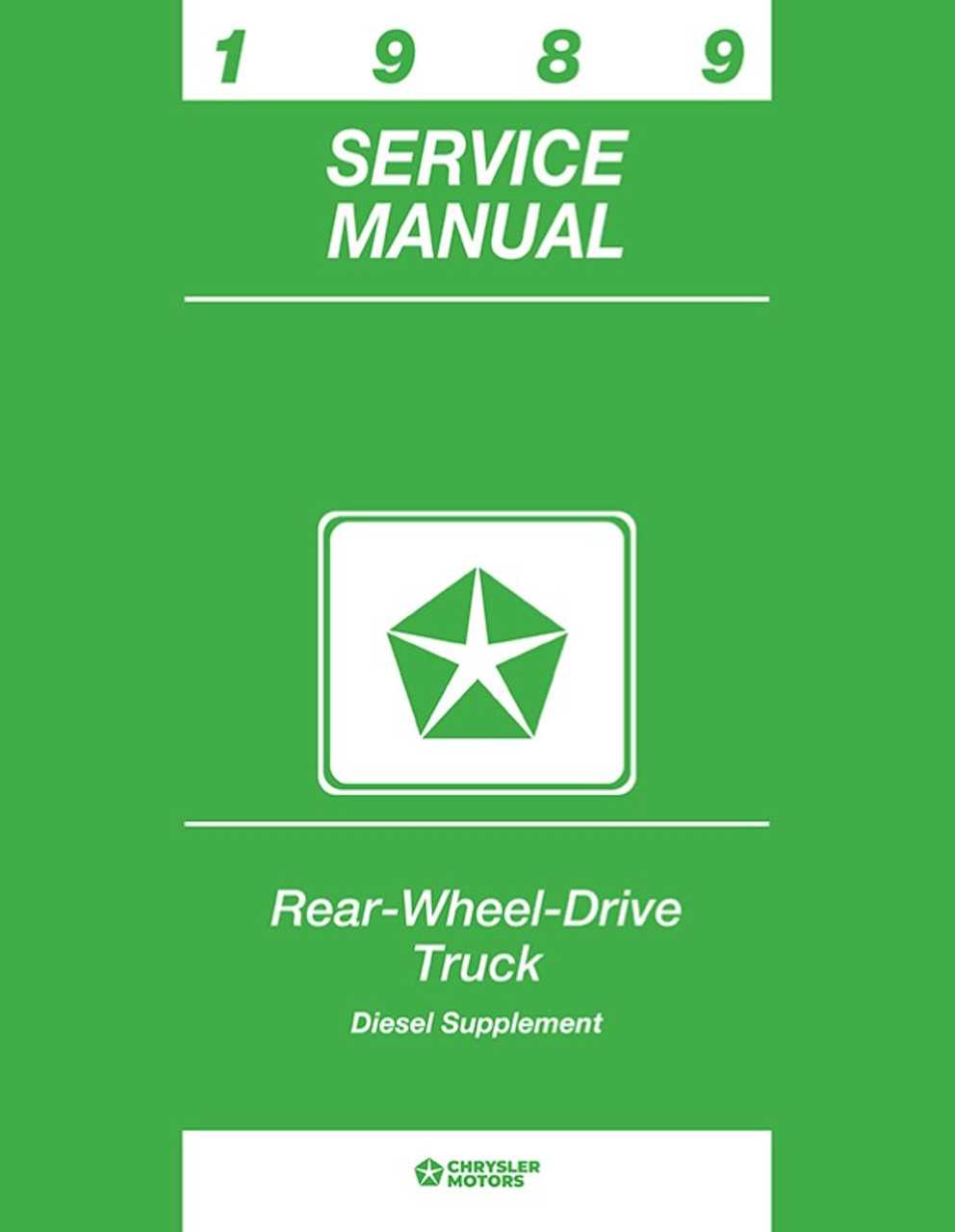
Maintaining a tidy workspace reduces the likelihood of accidents. It’s important to keep tools organized and ensure adequate lighting is available to enhance visibility during tasks.
| Safety Equipment | Purpose |
|---|---|
| Gloves | Protects hands from injuries and contaminants |
| Goggles | Shields eyes from debris and chemicals |
| Steel-Toed Boots | Prevents foot injuries from heavy objects |
| Ear Protection | Reduces noise exposure during operation |